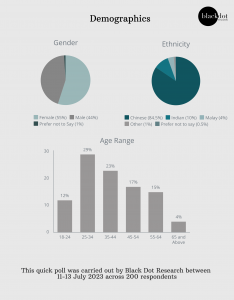The rental of two state-owned colonial bungalows by Law and Home Affairs Minister K Shanmugam and Foreign Affairs Minister Vivian Balakrishnan sparked allegations of misconduct and preferential treatment in the rental process. The investigations into these allegations (carried out by the Corrupt Practices Investigation Bureau (CPIB) and by Senior Minister Teo Chee Hean in an independent review) have similarly been the subject of debate and discussion.
In the wake of the Ridout Road saga – from the initial spread of news, to the investigations and subsequent discussion in Parliament – we ran a quick poll to get a snapshot of different local perspectives. While both official reports concluded that no wrongdoing occurred, the insights we see in this quick poll reflect a broader sense of split opinions and lingering concern from the public.
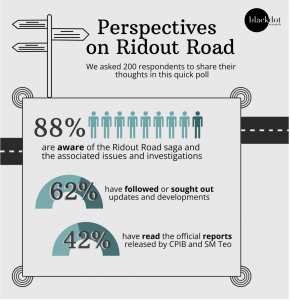 A majority of respondents appear to be engaged with the Ridout Road saga, with 88% being aware of it, and over 62% actively following or seeking out updates. A further 42% have even read the official reports – demonstrating a high level of engagement and investment in the investigations.
A majority of respondents appear to be engaged with the Ridout Road saga, with 88% being aware of it, and over 62% actively following or seeking out updates. A further 42% have even read the official reports – demonstrating a high level of engagement and investment in the investigations.
This is possibly an indicator of the high levels of public interest this issue has generated – and could also be an indicator of likely interest in future probes or unfolding issues surrounding Ministerial conduct and financial dealings.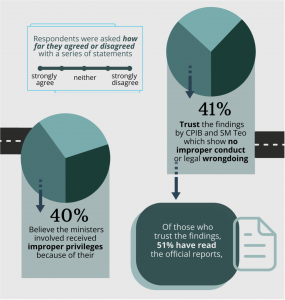
While a small majority agrees that the Government handled the investigation appropriately, opinions were nevertheless fragmented – with 33% disagreeing, and 28% neither agreeing or disagreeing. This relatively small margin of difference between stances continued throughout the poll.
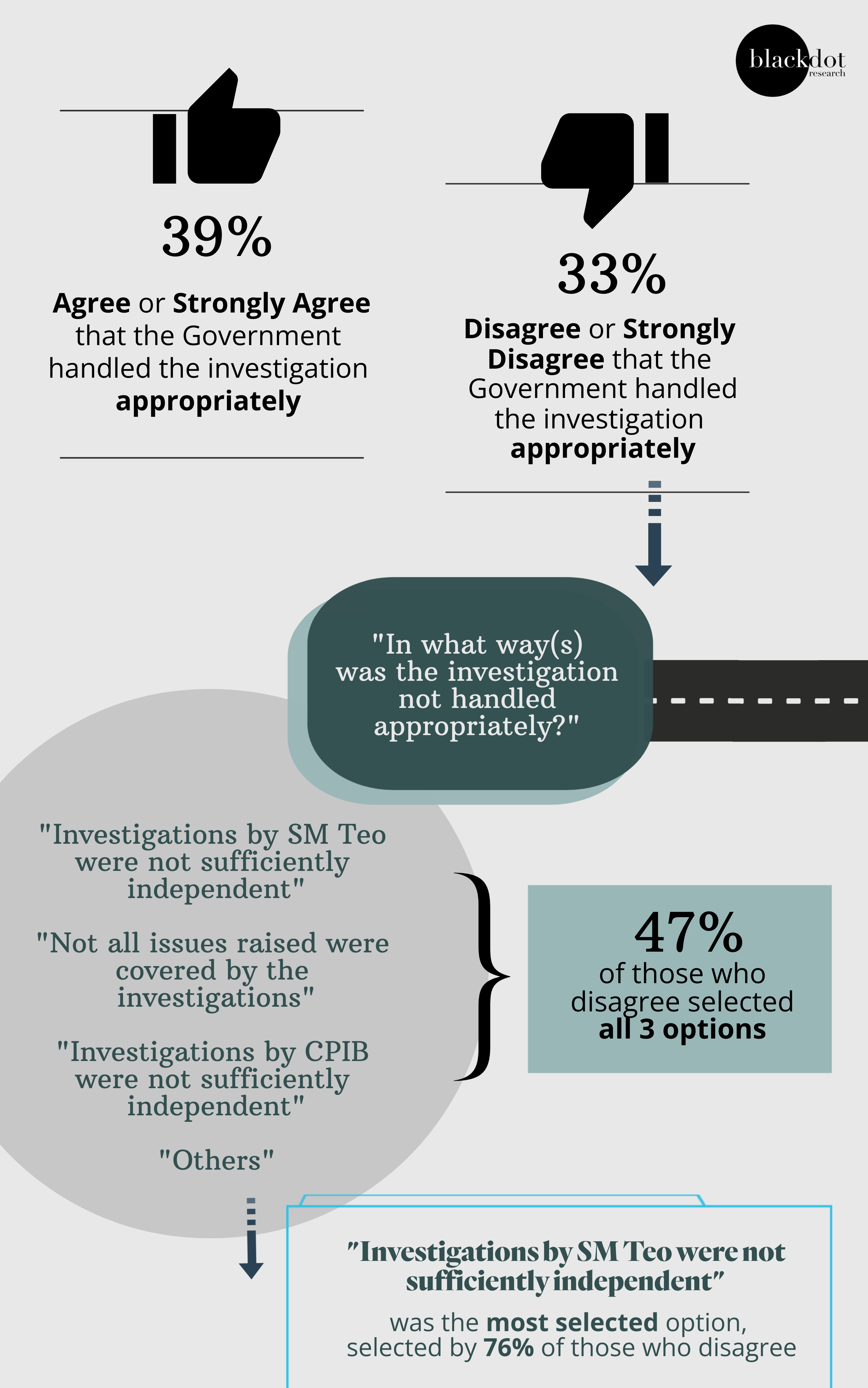
Of the respondents who indicated disagreement that the Government handled the investigations appropriately, over half had more than one issue of concern. Apart from the options listed, respondents were also able to offer their own answers; with about 10% doing so. These open-ended responses centered around possible breaches of the Ministerial Code of Conduct, a perceived lack of “honesty,” and a perceived “waste” of taxpayer monies.
A small majority of respondents (38%) indicated that they are worried or concerned by the Ridout Road saga, while 29% indicated that they are not. Similarly, 34% disagree that their concerns have been resolved after the reports and parliamentary discussions – while 36% agree.
These results perhaps suggest that, for a portion of the public, the Government’s actions and responses have been extremely effective – with concerns removed and consistent confidence in the integrity of the investigation. However, a similar proportion of more skeptical and concerned individuals also appear to remain – with continued concerns that have been unresolved despite the conclusion of the investigation.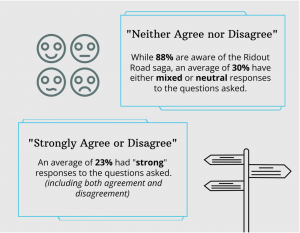 A relatively high proportion of respondents consistently indicated mixed or neutral feelings despite the higher proportion of awareness about the case. However, we also noted that an average of 23% of respondents indicated “stronger” opinions when asked about Ridout Road.
A relatively high proportion of respondents consistently indicated mixed or neutral feelings despite the higher proportion of awareness about the case. However, we also noted that an average of 23% of respondents indicated “stronger” opinions when asked about Ridout Road.
The split of opinions observable even across this quick poll sits next to the split in investment – perhaps reflecting ongoing shifts in how the Singaporean public engages with political topics and issues. The growing sense of active engagement feeds into the differing views and mixed feelings, leaving room for both positive and negative debate.
These shifts are poised to remain important as Singapore’s political sphere itself also looks set to undergo changes in the coming months and years; with the cementing of 4G leadership, elections, and a new generation of young voters.
